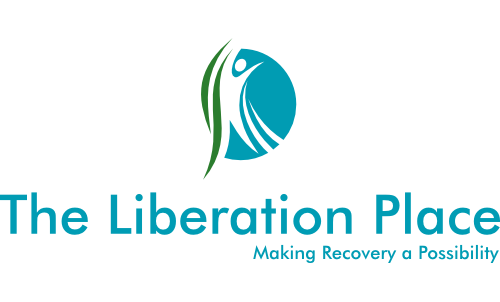The Distress Tolerance TIPP Skill
When we find ourselves emotionally overwhelmed, we step outside of our window of tolerance for emotion regulation. At this time, it is incredibly difficult to think things through in a rational logical way. This is not because there's something wrong with you, in fact, you are working exactly as you are supposed to as a pretty normal and regular human being. When our emotions reach a predetermined threshold, our brain begins to shut down certain functions that we don't need. These functions are considered “nonessential” as they are not required in an emergency situation where we may need the energy to fight our way through or run away from danger in the environment. This is the very nature of our internal Fight or Flight system.
You are now at your emotional breaking point, or maybe the worst has already happened, and the current situation you find yourself in is simply the straw that broke the camels back. The only thing you can do in these circumstances is to make an attempt to reduce the amount of distress you are currently experiencing. The Dialectical Behavior Therapy Distress Tolerance skills are designed to be incredibly helpful in circumstances such as this. This page, and the PDF attached to it, provides information on the DBT Distress Tolerance skill known as TIPP. This skill is intended to bring you down from the emotionally overwhelming situation you may currently find yourself in by deactivating the fight or flight system.
"The only thing you can do in these circumstances is to make an attempt to reduce the amount of distress you are currently experiencing."
~Steven Morris RP.
Using this skill doesn't remove the emotional experience in our system, it just shuts down the Fight or Flight aspect of things, which gives us the opportunity to bring in some of the other skills available in the DBT Skills Training program. TIPP follows the standard rules of mnemonics in Dialectical Behaviour Therapy, and it stands for Temperature, Intense exercise, Paced breathing, and Paired muscle relaxation. When a conscious effort is made to use any of these skills, the feelings of being emotionally overwhelmed can be significantly reduced in a short period of time. Take some time to read through the following descriptions then practice using these skills to figure out which ones work best for you.
Temperature:
When we're upset, our body will often increase in temperature. Quite often, people report feeling hot throughout a time considered to be emotionally overwhelming. To counter this, try splashing your face with really cold water, holding on to an ice cube, or putting your hands into a bowl of iced water. Changing your body temperature will help you to cool down both physically and emotionally. It is also helpful to activate the sense is associated with participating in these skills, as this can contribute to deactivating the fight, flight system that is present in an emotionally overwhelming situation.
Intense exercise:
Participating in any intense exercise will match our intents emotion. However, most of us are not marathon runners, and that's OK, because we really don't need to be. If you're capable of participating in this type of exercise program, and please check with a medical professional before you do, try sprinting to the end of your street, doing jumping jacks until you've tired yourself out, or even climbing the stairs in your apartment building. Increasing oxygen flow helps to decrease your stress levels. Plus, it's incredibly difficult to remain dangerously upset when you are physically exhausted. Remember, anger is a physically draining emotion to maintain for any significant period of time.
“Increasing oxygen flow helps to decrease your stress levels. Plus, it's incredibly difficult to remain dangerously upset when you are physically exhausted.”
~Steven Morris RP.
Paced breathing:
Breathing is probably one of the most natural things we all do, in fact, it's pretty much taken for granted. However, most people are not aware of the skill it takes to control your breathing in order to have a profound impact on reducing your emotional pain. There are many different types of breathing exercises you can do to achieve this goal.
If you have a favorite, breathe it out, if you don't, try a technique called box breathing. Each breath interval is four seconds long. Take in air four seconds, hold it in four seconds, breathe out four, and hold four. And then start the process over again. Continue to focus on this breathing pattern until you begin to feel calm. much like temperature reduction, steady breathing reduces your body’s fight, flight or freeze response.
Paired muscle relaxation:
For many people, the science of paired muscle relaxation is a fascinating thing. When you go through the process a voluntarily tightening of muscle, then relaxing it, and allowing it to rest, the science has shown us that the muscle will become more relaxed than it was before it was tightened.
It is a physiological fact that any relaxed muscle requires less oxygen, so your breathing and heart rate will naturally slow down as a result. Next time you're in a state of emotional overwhelmed, and you're able to tap into this type of skill, focus on a specific group of muscles in your body, such as the muscles in your arms. Tighten the muscles as much as you can for five seconds. Then let go of the tension. Let the muscles relax, and you'll begin to relax as well.
“It is a physiological fact that any relaxed muscle requires less oxygen, so your breathing and heart rate will naturally slow down as a result.”
~Steven Morris RP
Putting the skill into practice:
Using the distress tolerance skills in TIPP will bring you a step closer to what is known in DBT as a wise state of mind. In this state, you are able to recognize the rational, logical aspects of the reason mind, and understand the passion associated with emotion mind while still maintaining the skills required to make constructive choices. allowing you to deal with the problem you are currently facing, and generally cope in a healthy productive way.
Take some time to practice these skills when you are not facing an emotionally overwhelming situation in order to develop your ability to implement them. Remember, attempting to do this for the first time when you are in a state of emotional overwhelmed is incredibly difficult to do. Practicing this skill when you are in a state of calm mind will develop your ability to implement the skill when needed.
Follow us on Social Media





